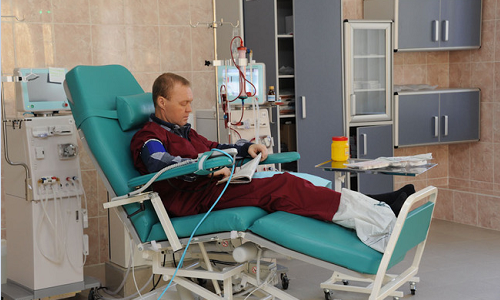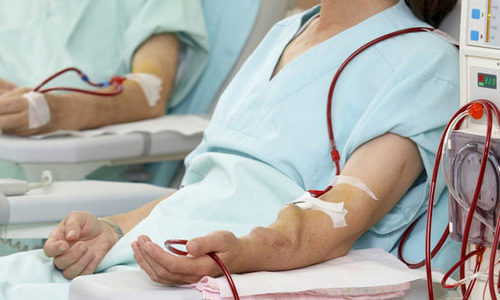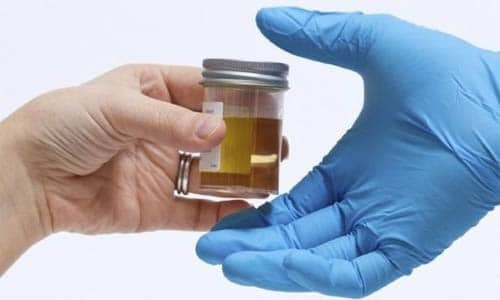Renal dialysis is a curative procedure used in medicine for kidney failure characterized by its acute or chronic course, causing a serious need to monitor blood pressure level, purification from contaminated substances, excess fluid, maintaining the natural balance of electrolytes, and alkaline balance. Considering the condition, the age of the patient, the severity of the disease, one of the types of dialysis is chosen.

Classification of dialysis
In the treatment of renal failure guided by 2 types of dialysis:
- hemodialysis;
- by peritoneal dialysis.
Each of these species is characterized by its technique, indications for use, contraindications.
Hemodialysis
Represents a procedure in which all actions of medical personnel are aimed at maximum purification of blood and its filtration using an apparatus that artificially performs the function of the kidney. Speaking about the purification of blood, we mean the isolation of low- and medium-molecular substances from it. Cleansing the blood of pollutants, hemodialysis contributes to the invariance of the protein in the plasma.
Kidney dialysis in this case is aimed at treating acute renal failure caused by:
- shock state of the patient as a result of the received trauma, allergic manifestations, poisoning with chemicals, some medications;
- signs of kidney failure caused by the development of acute pyelonephritis, glomerulonephritis, disorders of the genitourinary system.
Hemodialysis is prescribed for those who suffer from the last stage of kidney failure characterized by its chronic course, as well as the complete loss of the filtration function that facilitates the accumulation of poisons that poison the body. The results of the procedure are as follows:
- a significant decrease in the level of uremic toxins;
- normalization of the composition of electrolytes, acid balance of blood;
- stabilizes the increased pressure by removing excess fluid from the blood.
However, the procedure for hemodialysis takes into account the patient's contraindications, characterized by:
- cerebral hemorrhages;
- severe cardiac and vascular insufficiency;
- diabetes mellitus of any degree;
- with any bleeding.
The process of blood purification is carried out permanently, in specially designated for such manipulations hemodialysis rooms. The procedure requires a 3-fold visit to the patient and lasts for several hours.
Peritoneal dialysis
In the case of peritoneal dialysis of the kidneys, a dialysis solution is used for purification, injected into the abdominal cavity for several hours. The dialysis solution is delivered through the catheter being inserted. The flow of blood is carried out through the intestinal vessels and the mucous membrane of the peritoneum, and its filtration occurs due to the solution introduced into the peritoneum. Regarding the dialysis solution, the selection is carried out strictly, taking into account the peculiarities of the disease in the patient. The selected solution remains constant for the patient.
Peritoneal dialysis has clear advantages over hemodialysis. The advantages of this method of blood purification are that:
- a patient can lead a full-fledged lifestyle, independent of the procedure, he has free time both for work and for other activities, including rest, entertainment, travel, others;
- retains residual organ function;
- slows down the progression of cardiovascular pathology;
- decreases the number and incidence of viral infections;
- reduces eating restrictions, that is, the patient should not follow a strict diet;
- this procedure can take advantage of those patients who suffer from diabetes mellitus;
- patients who underwent the process of peritoneal dialysis, have a chance to undergo successful organ transplantation afterwards.
Contraindications for peritoneal dialysis are characterized by:
- with surgical interventions on the peritoneum;
- overweight;
- hernia;
- distortion of vision;
- the last degrees of kidney failure.
Dialysis Technique
To undergo a hemodialysis procedure, the patient should contact a specialized medical center at his place of residence. However, the patient should not leave or travel outside the city at the time of treatment, since interruption can lead to inefficiency of the process itself. The patient is fully instructed, during which he explains and shows the principle of treatment, its advantages and disadvantages, the result, side effects, and others.

After the briefing the patient is placed in a special chair, by means of a catheter tubes are inserted through which the blood is pumped into the dialyzer. At the end of the session, that is, after filtration, the blood is returned back, but already through another blood vessel. The catheter is left in the vein until all procedures have been completed, and the patient will be prepared for a kidney transplant.
As for the second method, peritoneal, it is much easier compared to the previous one. It can be carried out at home, does not require special training or preparation from the patient. If hemodialysis requires several cleansing procedures in a week, then peritoneal dialysis takes place all day. At the same time, the patient only needs to timely drain and drain the sterile filter solution with a catheter installed on the abdominal wall in front.
Compliance with diets for dialysis
Kidney disease requires strict adherence to a diet. In kidney dialysis, the diet is aimed at the absolute exclusion or restriction of salt, as the latter causes the patient's thirst, complicating the work of the kidneys. In addition to salt, the patient should avoid the consumption of foods that are rich in phosphorus, as they participate in the withdrawal of calcium, which is undesirable for the patient himself.
In dialysis of the kidneys, it is recommended that diet No. 7, the essence of which is limited use:
- protein( 60-70 grams);
- carbohydrate( 300 g.);
- animal fat( 70 g.);
- liquid( 0.5 liter);
- salt( 3-4 gr.);
- calcium( 1 g.);
- potassium( 3 g);
- phosphorus( 1 gr.).
Diet №7 recommends the daily intake of certain products, according to which a patient in a limited amount is allowed to use:
- saltless bread 100-150 g;
- vegetable soup 200-250 g;
- low-fat meat, fish up to 110 g;
- a number of sour-milk drinks up to 190 g;
- sour cream to 55 g;
- cottage cheese up to 45 g;
- eggs soft-boiled 1 pc;
- fruit, berries up to 280 g;
- sugar to 15 g;
- Creamy, vegetable oil up to 20-25 g.
The diet excludes the consumption of meat or mushroom sauce, broth, sausage and canned products, smoked meats, cheeses of different varieties, dried fruits, chocolate and cocoa products, vegetables or fruits rich in oxalic acid,potassium.
What is required of the patient?
Kidney dialysis is a complex treatment process that requires a patient:
- desire, understanding, desire for healing.
- discipline, as the process consists of a repetition up to the procedure associated with kidney transplantation.
- strict adherence to the above diet.



